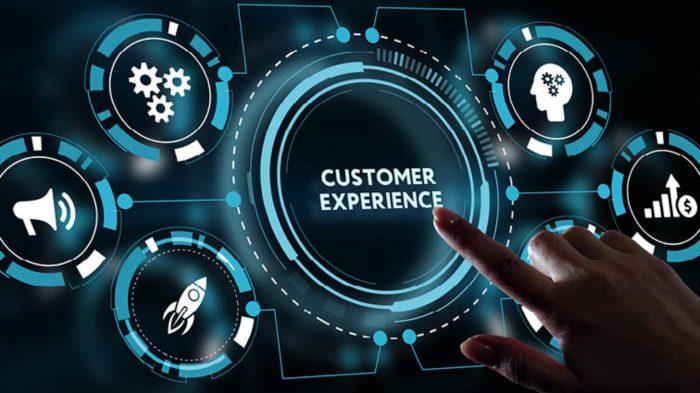Personalizing Customer Experiences sets the stage for building lasting relationships in the ever-evolving business landscape. From tailored recommendations to seamless interactions, this approach is a game-changer.
In today’s competitive market, understanding the significance of personalized customer experiences can make or break a business.
Importance of Personalizing Customer Experiences

Personalizing customer experiences is crucial in modern business because it allows companies to connect with their customers on a deeper level, creating a sense of individuality and uniqueness. By tailoring products, services, and interactions to meet the specific needs and preferences of each customer, businesses can enhance customer satisfaction, loyalty, and retention.
Examples of Companies Excelling in Personalized Customer Experiences
- Amazon: Utilizes personalized product recommendations based on past purchases and browsing behavior to enhance the shopping experience.
- Netflix: Offers personalized movie and TV show recommendations based on viewing history to improve user engagement.
- Spotify: Curates personalized playlists and music recommendations based on listening habits to keep users entertained.
How Personalized Experiences Impact Customer Loyalty and Retention
When customers feel understood and valued by a company, they are more likely to develop a sense of loyalty and continue to support the brand. Personalized experiences create a strong emotional connection with customers, leading to increased customer satisfaction, repeat purchases, positive word-of-mouth referrals, and long-term loyalty.
Strategies for Personalizing Customer Experiences
Personalizing customer experiences is crucial for building long-lasting relationships and driving customer loyalty. Here are some effective strategies for achieving this goal:
Customization
Customization involves tailoring products or services to meet the specific needs and preferences of individual customers. By offering personalized options, businesses can create a unique and memorable experience for each customer.
Data-Driven Personalization
Data-driven personalization utilizes customer data such as purchase history, browsing behavior, and demographic information to deliver targeted and relevant content. By analyzing this data, businesses can anticipate customer needs and provide personalized recommendations.
AI-Driven Personalization
AI-driven personalization leverages artificial intelligence technology to automate and optimize the personalization process. AI algorithms can analyze large amounts of data in real-time to deliver personalized experiences across various touchpoints, increasing efficiency and accuracy.
Best Practices for Implementation
– Collect and analyze customer data to gain insights into preferences and behavior.
– Use personalized messaging and recommendations to enhance the customer experience.
– Implement A/B testing to optimize personalization strategies and improve results.
– Continuously monitor and adjust personalization efforts based on customer feedback and performance metrics.
Role of Omni-Channel Strategies
Omni-channel strategies involve integrating multiple channels such as online, offline, mobile, and social media to create a seamless and cohesive customer experience. By adopting omni-channel strategies, businesses can ensure that personalized experiences are consistent across all touchpoints, leading to higher customer satisfaction and loyalty.
Technology and Tools for Personalizing Customer Experiences

In today’s digital age, businesses have access to a variety of technologies and tools that can help them personalize customer experiences like never before. From CRM systems to marketing automation platforms, these tools play a crucial role in creating tailored interactions with customers. Let’s explore some key technologies and tools used for personalizing customer experiences.
CRM Systems
CRM (Customer Relationship Management) systems are essential tools for managing customer interactions and data. They help businesses track customer behavior, preferences, and purchase history, allowing for personalized communication and targeted marketing campaigns.
Marketing Automation Platforms
Marketing automation platforms enable businesses to automate repetitive marketing tasks and personalize customer interactions at scale. By segmenting customers based on behavior and preferences, businesses can deliver targeted messages and offers, increasing engagement and conversions.
Personalization Engines
Personalization engines use algorithms to analyze customer data and deliver personalized content in real-time. These engines help businesses tailor website experiences, product recommendations, and marketing messages to individual customers, enhancing customer satisfaction and loyalty.
Benefits of AI and Machine Learning, Personalizing Customer Experiences
Utilizing AI and machine learning technologies can significantly enhance customer personalization. These technologies can analyze vast amounts of data to predict customer behavior, preferences, and trends, enabling businesses to offer personalized recommendations and experiences in real-time.
Data Analytics for Tailoring Experiences
Data analytics plays a crucial role in tailoring experiences to individual customers. By analyzing customer data, businesses can gain valuable insights into customer behavior, preferences, and engagement patterns. This data-driven approach helps businesses optimize their personalization strategies and enhance the overall customer experience.
Challenges in Personalizing Customer Experiences
When it comes to personalizing customer experiences, businesses often face various challenges that can hinder their efforts to create tailored interactions for each customer. Overcoming these challenges requires strategic planning and a deep understanding of customer needs and preferences.
Data Privacy and Ethical Considerations
One of the major challenges in personalizing customer experiences is navigating the ethical considerations and privacy concerns associated with collecting and using customer data. Businesses must ensure that they are transparent about how customer data is being used and obtain proper consent before personalizing experiences.
Respecting customer privacy and maintaining ethical standards is crucial in building trust and loyalty.
Lack of Quality Data
Another common challenge is the lack of quality data needed to personalize customer experiences effectively. Inaccurate or incomplete data can lead to misguided personalization efforts and potentially alienate customers. To overcome this challenge, businesses need to invest in data quality management and ensure they are collecting relevant and up-to-date information.
Integration of Systems and Channels
Integrating data and systems across various channels and touchpoints can be a daunting task for businesses looking to personalize customer experiences. Siloed data and disparate systems can hinder the ability to create a seamless and consistent personalized experience. Implementing a unified customer data platform and integrating systems can help overcome this challenge.
